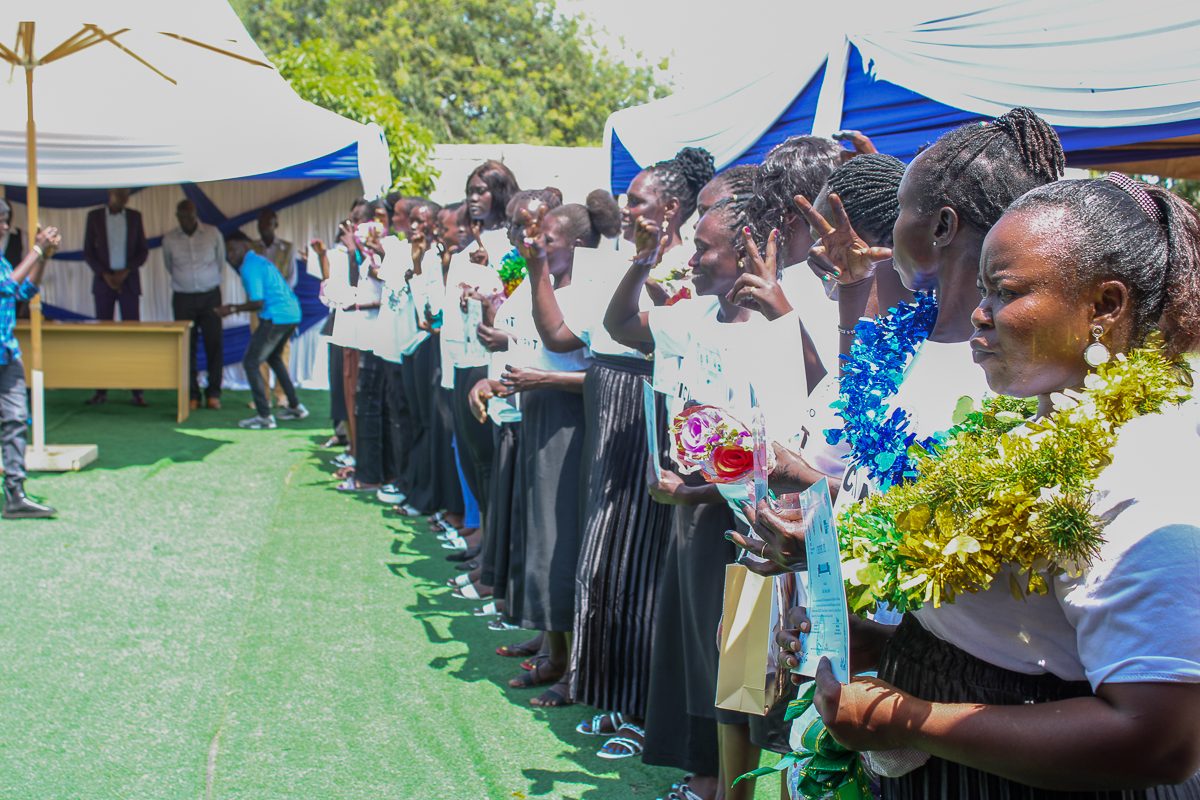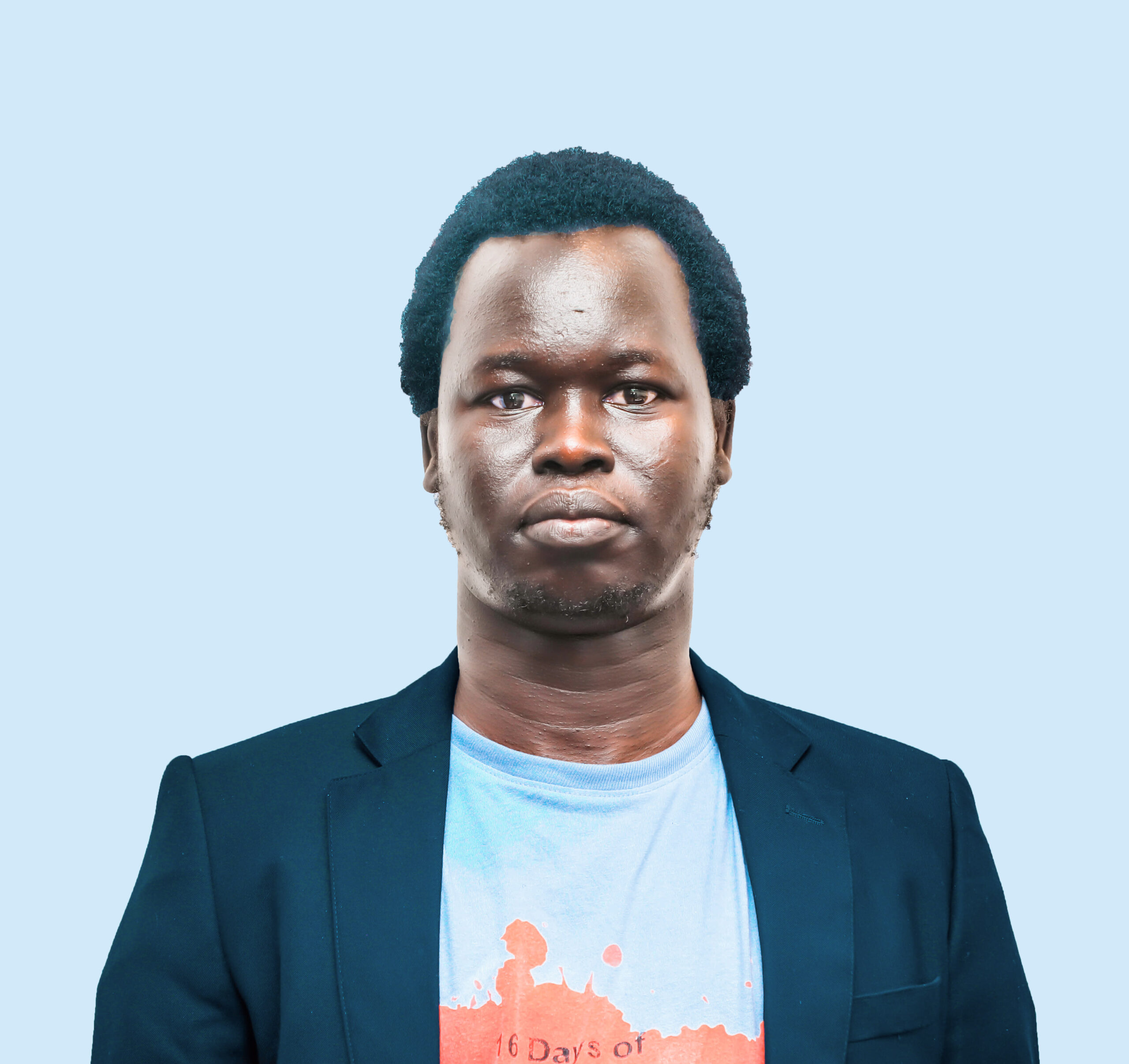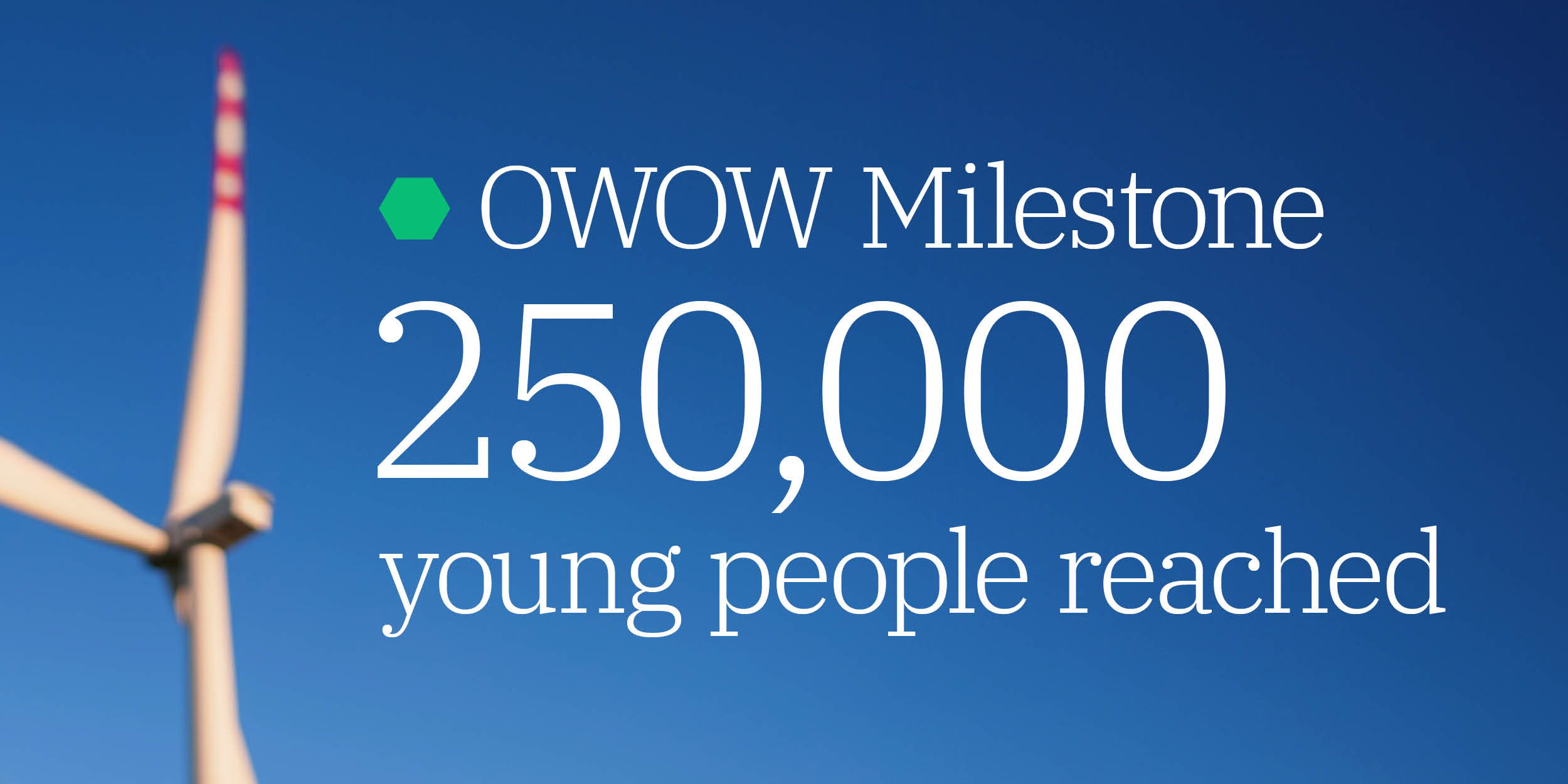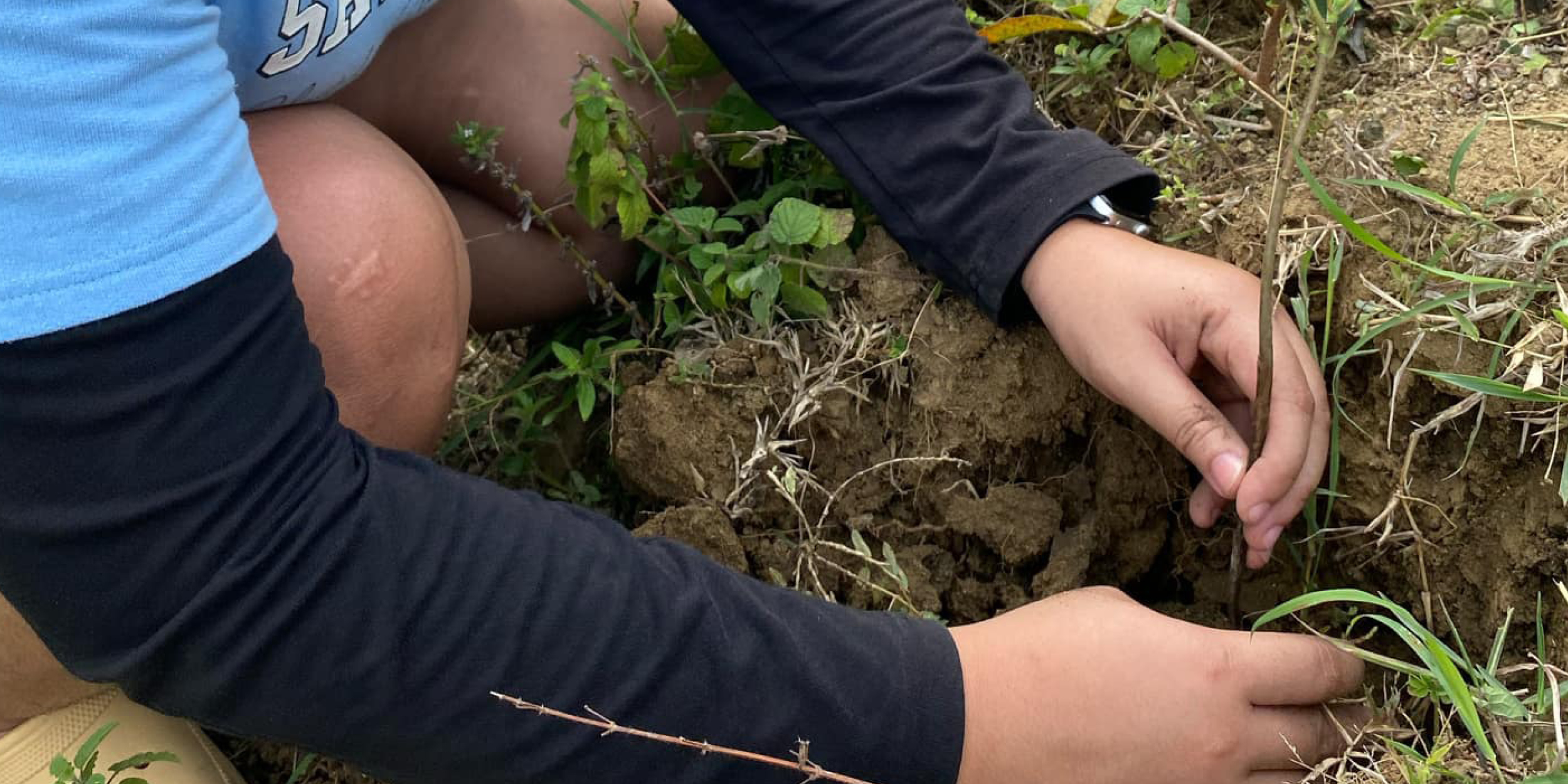Community-Led Efforts Keep Youth Learning in Juba

The Kugi Community Center in Juba, South Sudan, filled with excitement as 45 young men and women stepped forward to receive certificates marking the end of their training program. Parents, community leaders, volunteer trainers, and representatives from Education Development Center (EDC) filled the community center to cheer them on.
“Today, 45 youth have graduated with practical skills. Many are starting small businesses. They’re not looking for handouts—they’re creating their own futures,” announced Dr. Joseph Lupai, executive director of HADO, a Juba-based youth organization.
Months earlier, the graduates, ages 15–29, had begun classes under the USAID-funded Youth Empowerment Activity (YEA), implemented by EDC from October 2022 to April 2025. In three years, YEA provided more than 20,000 out-of-school youth in 14 counties with access to basic education and life skills. YEA helped youth find job opportunities, encouraged positive health behaviors, and boosted youth civic engagement. EDC worked closely with grassroots organizations, such as HADO, which led classes at the community level and distributed in-kind grants to support their youth work.
When USAID projects worldwide closed, many feared momentum would stall. However, HADO committed to continuing classes. “We felt driven to give back,” said Dr. Lupai. “Even without funding, we couldn’t walk away. These youth wanted to learn—how could we deny them that opportunity?”
Loku Peter Samuel, one of HADO’s instructors who underwent EDC’s Work Ready Now and Be Your Own Boss trainings in 2024, described his youth learners as “committed, curious, and hopeful.” He witnessed young mothers show up daily with babies in tow, eager to learn and become entrepreneurs. “Some have already started selling tomatoes, onions, and fruits. Others have improved their communication and even their written English,” Samuel noted.
Among the graduates was Agnes Nighty, who described her newfound confidence: “I can now express myself clearly in public and resolve conflicts in my business or community. I’ve learned when to speak and when to listen.”
Her classmate Okot Emmanuel called the courses “a second chance,” adding, “I’ve gained confidence, leadership, and communication skills. The training kept me away from harmful habits like alcoholism and drug use. It changed my mindset.”
Charity Yata urged that the program widen its reach: “Many of us didn’t finish school. This kind of training helps fill that gap. It should reach more youth like me.”
EDC continues to fill the gaps through its Juba Learning Lab (Lab), EDC South Sudan’s hub for piloting and refining youth curricula. Established in July 2024 under YEA, the Lab stayed open after the project closed in May 2025. Inside this classroom, instructors test new lessons, document effective teaching practices, and fine tune monitoring and evaluation tools in real time. Today, 34 out-of-school learners come to class four times a week. Their training combines in-person facilitation with interactive audio modules that strengthen literacy, numeracy, and entrepreneurship skills.
“Despite YEA ending, EDC remains dedicated to youth development in South Sudan,” affirmed Daniel Danis, EDC country representative. “We continue to support local partners such as HADO, and the Lab serves as an innovation hub to sharpen youth training methods. Today’s graduation shows the lasting impact of that work.”
As Dr. Lupai summed up, “Through such programs, we are helping youth become their own bosses. And that is something worth celebrating.”
Daniel Danis is a communications and development professional with over 15 years’ experience in donor-funded programs in fragile contexts. He is currently the Country Representative for Education Development Center (EDC) in South Sudan, overseeing operations and donor engagement.







